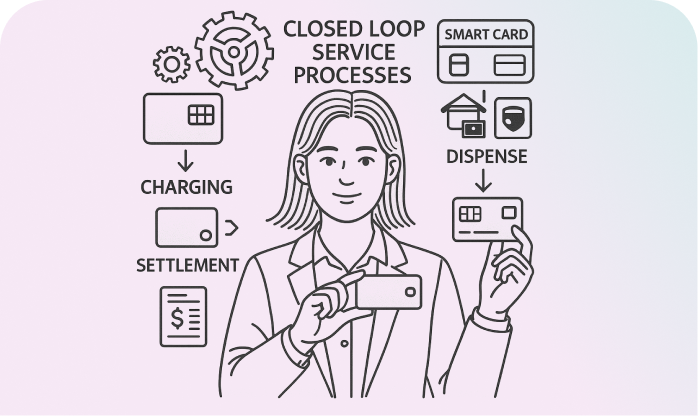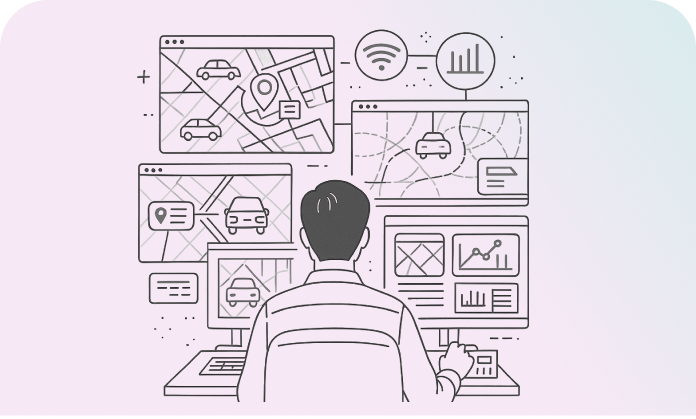Smart mobility is a holistic concept that encompasses innovative transportation services and seamless infrastructure, going beyond traditional mobility. It is reshaping urban lifestyle and transportation paradigms by shifting from ownership-based models to usage-focused solutions. Technologies such as vehicle sharing, autonomous driving, and mobile ticketing, alongside integrated mobility services called Mobility as a Service (MaaS) and intelligent transport systems (ITS), are being utilized to maximize efficiency and sustainability of transportation. This trend is accelerated by the convergence of ecofriendly transportation and digital technology.
Globally, the integration of mobility services and transportation infrastructure has become a key priority. Data-driven, adaptive mobility services, combined with artificial intelligence (AI) and the Internet of Things (IoT), are helping to alleviate traffic congestion and address environmental challenges. Furthermore, smart mobility solutions are emerging as a driver of urban competitiveness, offering personalized services and a safer, more efficient mobility experience. LG CNS is delivering optimal solutions for future transportation needs by integrating the latest technological advancements and market demands.
and Drive Service Innovation
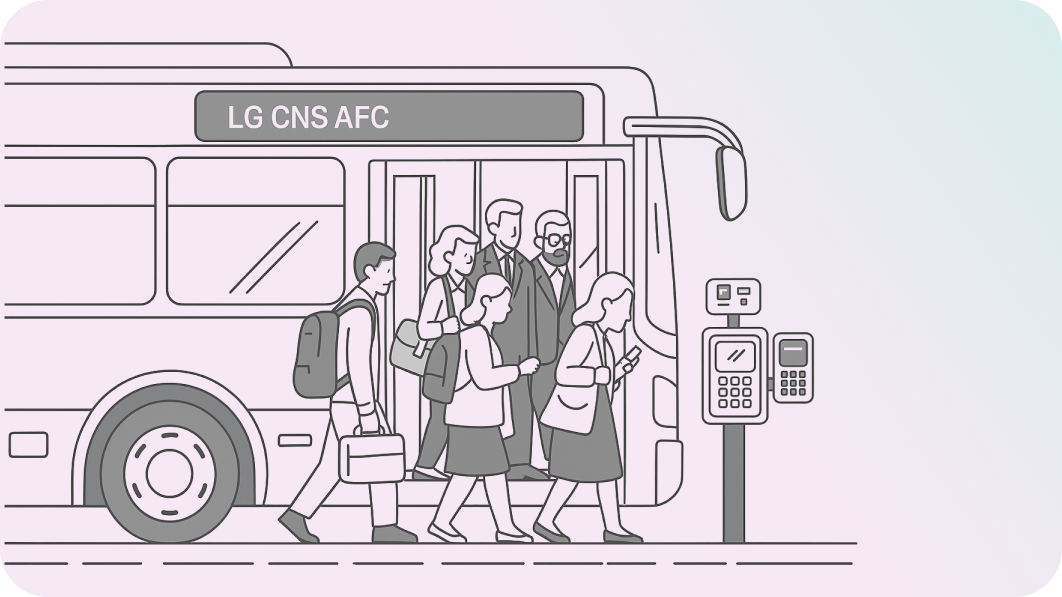
LG CNS AFC
The global AFC market has evolved from smart card-based fare collection, where fares are collected automatically via card instead of cash, to account-based ticketing (ABT) and EMV (Europay, Mastercard, Visa)-based open payment services. LG CNS AFC consists of modules that integrate Card-Based Ticketing (CBT), ABT, and EMV seamlessly, allowing for flexible operation tailored to each client's public transportation system requirements. By actively utilizing these technological advancements, LG CNS provides successful solutions in the open payment-based AFC market.
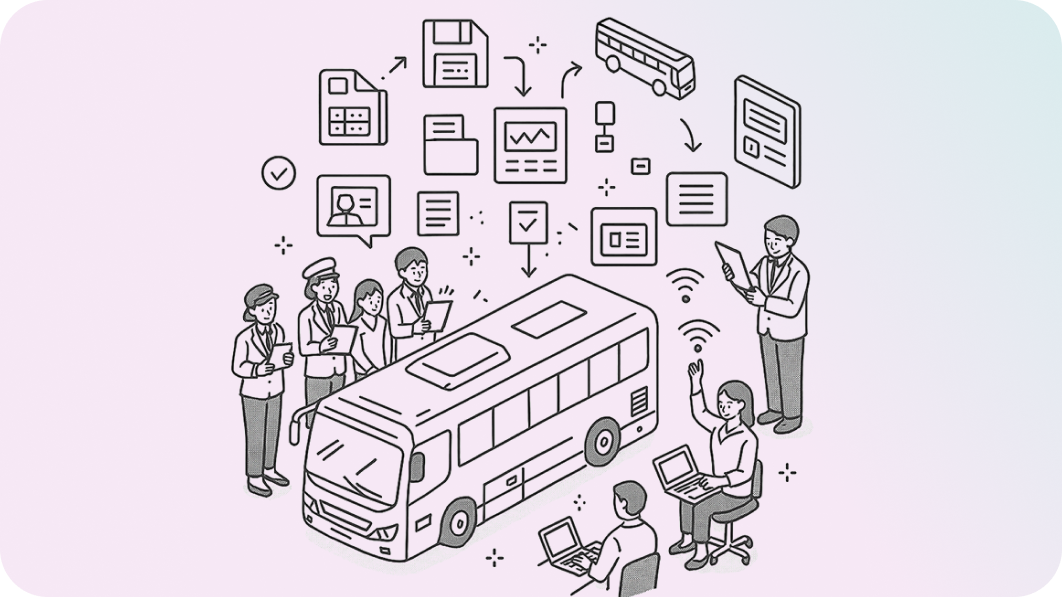
LG CNS FMS
LG CNS FMS is an all-in-one solution that integrates various bus equipment and services, offering optimal opportunities for efficient public transportation operations to operators, drivers, and passengers alike. This integrated solution complies with international standards and is designed to enhance accessibility to public transportation for both drivers and passengers. Additionally, it provides value-added services that enhance operational efficiency and functionality in bus management.

LG CNS MaaS
The LG CNS MaaS platform provides an integrated mobility service that connects various transportation modes by means of a single application, offering one-stop services for route planning, customized service recommendations, reservations and payments, and transfer benefits. Through an API-based open architecture, the platform enables seamless integration with various services, allowing cities to access a unified mobility experience across multiple services. This enhances urban mobility, making it easier for citizens to utilize various transportation options.
LG CNS AFC provides Card-Based Ticketing (CBT), Account-Based Ticketing (ABT), and EMV services, effectively tailored to the public transportation operating conditions of each client.
LG CNS FMS provides integrated support for efficient vehicle operations and services, including pre-operation planning, real-time management of fleet operations, an integrated onboard system, and Real-Time Passenger Information (RTPI) services for the public.
LG CNS’ MaaS solutions consist of core and basic services, which are packaged flexibly according to the selected mobility options. This enables flexible application of essential services such as mobility control and monitoring, rental and return management.

Integration and Expansion Support for Platform-Based Mobility Services
LG CNS provides an integrated, one-stop mobility service that has all transportation modes consolidated into a single application, which enables route planning, personalized mobility recommendations, reservations and payments, and transfer benefits.
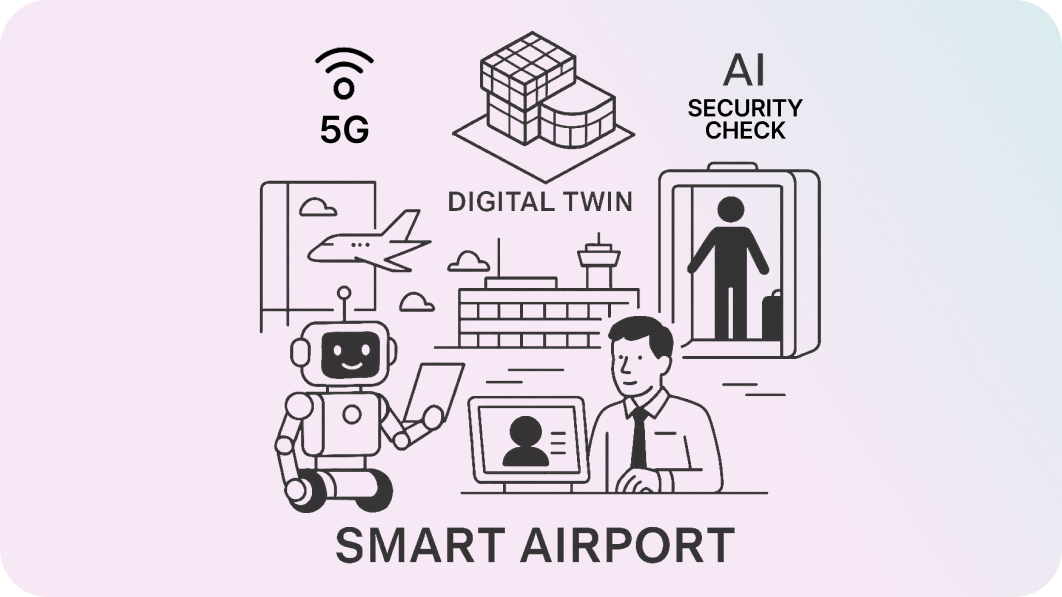
Airports: Robots, 5G-Specialized Networks, Digital Twins, and AI Security Screening Systems
Airport systems are rapidly evolving toward smart airports through digital transformation, ensuring safe aircraft operations and enhanced passenger convenience. LG CNS provides cutting edge technologies for global smart airport initiatives, including AI-based robots, 5G-specialized networks, and digital twin services for airport facilities. These solutions are integrated with LG CNS's airport information system, which serves as the epicenter of airport operations. Additionally, LG CNS is leading airport safety innovations by introducing integrated security systems, AI-powered analysis of baggage imagery, and cutting-edge security screening services, such as CT X-ray and an integrated reading system, positioning itself as a key partner in smart airport transitions.
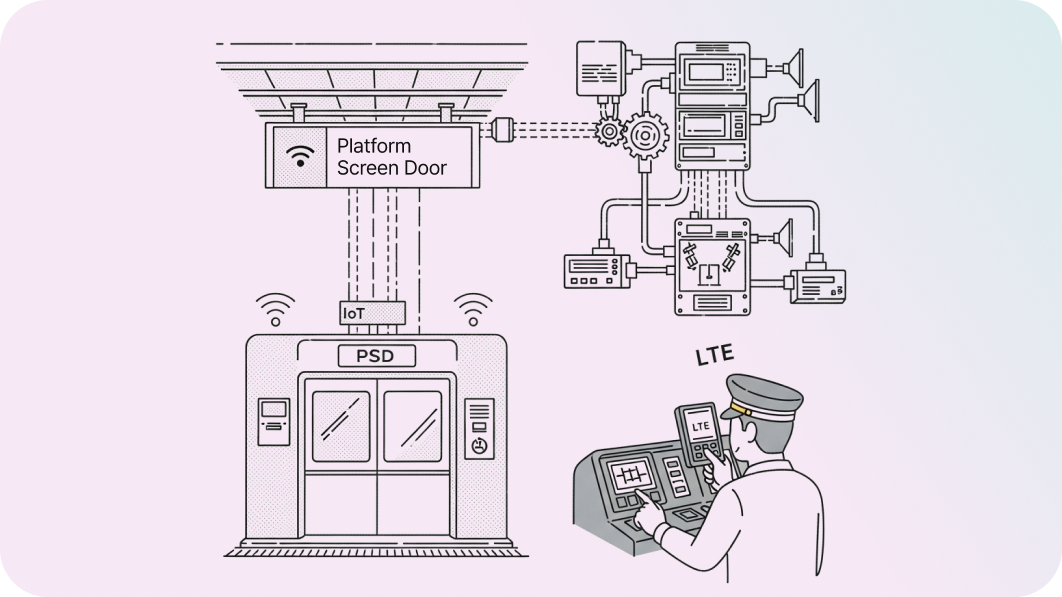
Rail: PSD, Station Communications, Train Wireless
In the rail IT sector, platform screen doors (PSD), station communication systems, and train wireless systems are undergoing rapid digital transformation to enhance passenger safety and operational efficiency. PSD systems utilize IoT and sensor-based real-time monitoring and failure prediction technologies to ensure passenger safety, particularly as stations and train operations become increasingly automated. Station communication systems are designed with redundant broadband transmission networks to ensure uninterrupted operations and centralized control. Additionally, major railway communication facilities include integrated network infrastructure, broadband transmission systems, and train destination display boards. The train wireless system is a critical component that transmits essential commands for railway operations using 4G LTE technology.
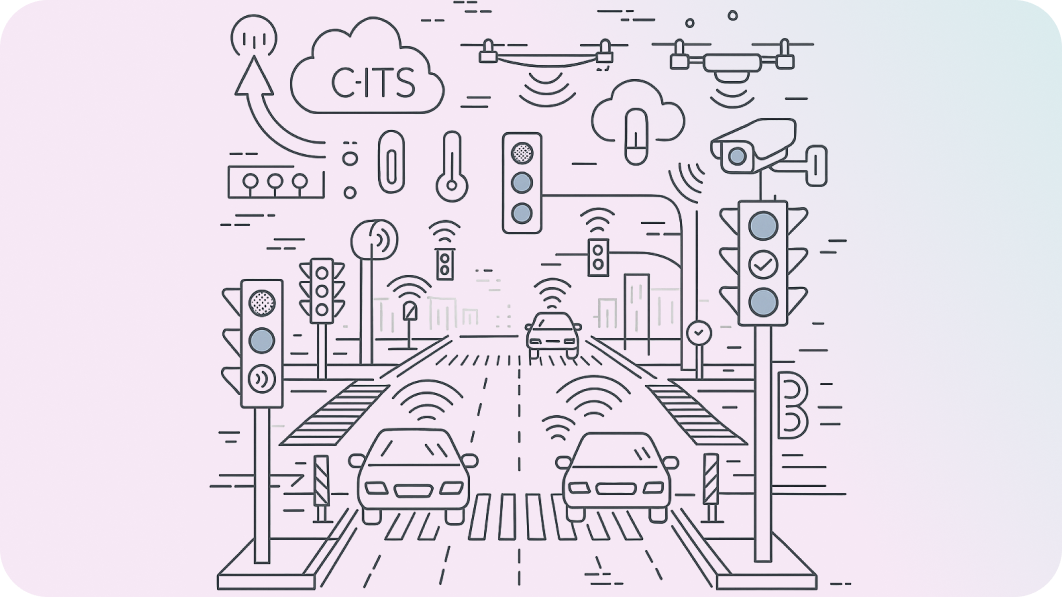
Roads: C-ITS, Signal Systems, Road Management
Road IT infrastructure is advancing toward AI-powered smart traffic systems, incorporating smart intersections, smart CCTV, and smart traffic signal systems, all driven by deep-learning recognition technologies. The Cooperative Intelligent Transportation System (C-ITS) supports real-time communication between vehicles (V2V) and between vehicles and infrastructure (V2I) to prevent accidents and optimize traffic flow. Traffic signal systems utilize AI-driven real-time analysis of traffic volume to adjust signal cycles dynamically, reducing congestion. Road management is increasingly integrating real-time monitoring and predictive maintenance technologies, leveraging drones and IoT sensors to enhance road safety and infrastructure efficiency. LG CNS delivers state-of-the-art IT systems with capabilities for data integration, real-time analytics, and automated management.
-
Modern airports are evolving beyond simple measures for improving passenger convenience, automating boarding procedures, and reducing wait times. By integrating advanced technologies from the Fourth Industrial Revolution, such as AI, big data, cloud computing, digital twins, and robotics, airports are now capable of delivering personalized passenger services and real-time operational responses. Therefore, all airport services should be designed to offer the passenger with a seamless journey, from the moment the passenger prepares for departure to the boarding process. Building a smart airport starts with a combination of cutting-edge technologies, operational efficiency, and enhanced passenger experiences. Airports can make the entire airport experience smarter and more efficient by adopting IoT, AI, biometric recognition technology, automated baggage handling systems, self-check-in services, and AI-based security systems, and by leveraging both AI and passenger experience data to provide services tailored to each passenger.
-
LTE-R (Long Term Evolution-Railway) is a dedicated wireless communication network designed specifically for railway operations. Since 2018, Korea National Railway, under the Ministry of Land, Infrastructure and Transport, has been implementing LTE-R nationwide. The system utilizes LTE-R technology and the 700 MHz frequency band, designated for integrated public safety networks. It consists of core equipment, base station equipment (DU and RRU), control devices, vehicle mobile station devices, portable wireless devices, application servers that provide railway communication services, and the Korea Train Control System (KTCS) that supports train control operations.
-
Cooperative Intelligent Transport Systems (C-ITS) enable real-time information exchange between vehicles and infrastructure, ensuring safer and more efficient vehicle flow. Successful implementation of C-ITS requires several key technologies including: communication technologies supporting 5G and V2X (Vehicle-to-Everything) connectivity; autonomous driving technologies; data analytics and AI to analyze and predict large-scale traffic data and to optimize vehicle flow; and smart infrastructure that enables roads, signals, and signage to interact with vehicles. Furthermore, it is necessary to consider standardization and regulatory frameworks to ensure interoperability of C-ITS across different regions and countries. By integrating these elements, C-ITS can significantly improve road safety, enhance traffic efficiency, and build a smarter transportation ecosystem.


